News
UN Report: Government agriculture subsidies harm the environment
23 Sep 2021In a new report released by the United Nations, the governmental body noted that nearly 90% of global farming subsidies cause harm to nature and human health. Of the $540 billion in agricultural subsidies allocated annually, the U.N. said $470 billion of those dollars are financing activities that have damaging consequences on the environment.
In the assessment, which was a collaboration between the U.N.’s FAO, UNDP and UNEP bodies, 87% of the monetary support issued by governments support industries that are mainly large agri-business conglomerates “distorts prices, environment and social goals.” Experts from the U.N. called for a “repurposing” of government funding towards sustainable agri-food solutions.
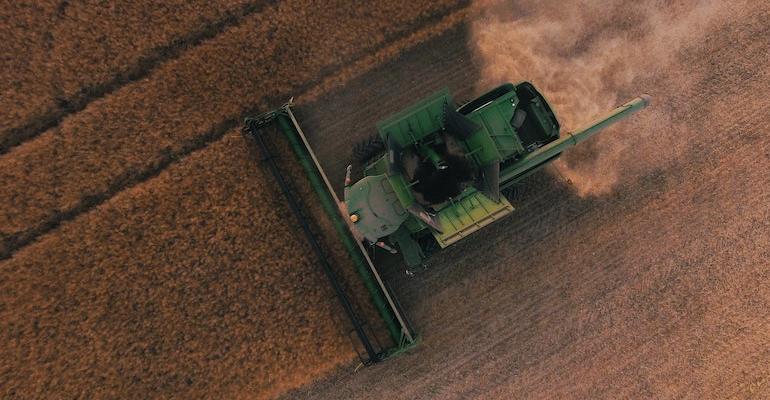
This report comes just prior to the convocation of the U.N. Food Systems Summit in New York, where participants will look to help combat climate change by creating sustainable food systems. While there is no one-size-fits-all solution to battle climate change, the body’s assessment noted that creating more efficient and equitable subsidy distributions will help alleviate practices that are inconsistent with the Paris Agreement goals and the Sustainable Development Goals (SDGs).
Not only are subsidies underwriting practices that are environmentally damaging, according to the report, but the majority are also not flowing toward enterprises that are invested in creating sustainable solutions for the long term alimentation of the global population. The U.N. estimates that by 2050 the global population will hit 10 billion, and in order to feed those people, the agricultural output of both plant and animal foods will need to be increased by 70% as compared to 2009 levels. Arriving at that level of production will pose an acute risk to the climate crisis mitigation goals set forth by the U.N.
Overall, global food systems are responsible for 35% of greenhouse gasses (GHG) emissions worldwide, according to a new study published last week in Nature Food. And the majority of those emissions come from the production of animal-based products, particularly beef and dairy. Every year, the entire food production system produces roughly 17.3 billion tons of GHGs. Of those, 60% are from animal-based foods whereas 29% are from plant-based foods.
In its report, the U.N. acknowledged the continued disparity between climate goals and the reality of current food production. However, the director-general of the FAO Qu Dongyu said in a statement that these findings are “wake-up call for governments around the world to rethink agricultural support schemes to make them fit for purpose to transform our agri-food systems.”
Related news
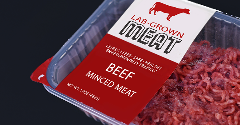
Israel approves Aleph Farms’ cell-cultured beef in world first
1 Feb 2024
Israel has granted the first regulatory approval for the commercial sale of cultivated beef, joining the US and Singapore in officially recognising cultivated meat’s role towards protein diversification.
Read more
Fazer and Solar Foods launch snack bar made with air protein
30 Jan 2024
Finnish food manufacturer Fazer has teamed up with foodtech startup Solar Foods to launch a limited-edition snack bar in Singapore made using a novel, carbon-fed microbial protein.
Read more
Big brands invest in precision fermentation-derived palm oil
25 Jan 2024
Although still not approved for food applications, big brands such as Unilever and Doehler are investing in precision fermentation-derived palm oil in a bid to reduce the environmental impact associated with this conventional palm oil.
Read more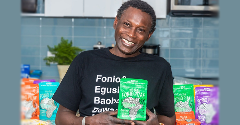
Supergrain fonio expands its reach in US market
11 Jan 2024
More US consumers will find nutritious, climate-smart grain fonio in supermarkets thanks to a new distribution structure for the import’s most prominent commercial brand, Yolélé.
Read more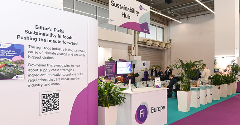
Sustainability meets innovation at Fi Europe 2023's Sustainability Ingredients Zone
9 Jan 2024
Fi Europe’s Sustainable Ingredients Zone showcases ingredients forging a path toward a greener future. Three innovators are redefining what sustainability within the food and beverage industry means, with upcycled products, regenerative agriculture, an...
Read more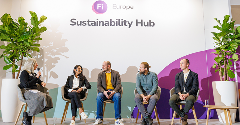
Supermarkets innovate with private label plant-based ranges
9 Jan 2024
Plant-based product ranges are an important part of retailers’ private label innovation efforts – and represent an important way for supermarkets to reduce their environmental impact.
Read more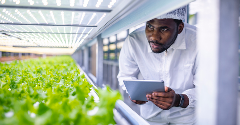
The UK prepares to open food security science centre
2 Jan 2024
Amid global food insecurity, the UK government says it is committed to producing crops resilient to climate change and addressing hunger and malnutrition with a food security science centre.
Read more
Novel food safety platform could eliminate animal testing
21 Dec 2023
The European Food Safety Authority (EFSA) has introduced a new platform that has the potential to eliminate animal testing in the food industry.
Read more
Water-conscious consumers, upcycled food, and tech-driven sustainability: Highlights from Fi Europe, part 2
14 Dec 2023
With climate change becoming a tangible reality, consumers’ environmental concerns are changing. At Fi Europe, market analysts revealed how people are now interested in everyday issues like water shortages and tech-driven solutions such as GM drought-r...
Read more
The food industry’s single-use packaging problem
12 Dec 2023
The food industry’s reliance on single-use packaging is a sustainability “sticking point” with viable alternatives not widely available – but new EU rules mean food businesses will remain responsible for the collection and disposal of the packaging the...
Read more